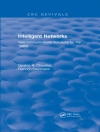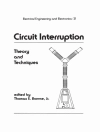Decentralized Frameworks for Future Power Systems: Operation, Planning and Control Perspectives is the first book to consider the principles and applications of decentralized decision-making in future power networks. The work opens by defining the emerging power system network as a system-of-systems (So S), exploring the guiding principles behind optimal solutions for operation and planning problems. Chapters emphasize the role of regulations, prosumption behaviors, and the implementation of transactive energy processes as key components in decentralizing power systems. Contributors explore local markets, distribution system operation and proactive load management. The role of cryptocurrencies in smoothing transactive distributional challenges are presented. Final sections cover energy system planning, particularly in terms of consumer smart meter technologies and distributed optimization methods, including artificial intelligence, meta-heuristic, heuristic, mathematical and hybrid approaches. The work closes by considering decentralization across the cybersecurity, distributed control, market design and power quality optimization vertices. – Develops a novel framework for transactive energy management to enhance flexibility in future power systems- Explores interactions between multiple entities in local power markets based on a distributed optimization approach- Focuses on practical optimization, planning and control of smart grid systems towards decentralized decision-making
Hassan Haes Alhelou & Mohsen Parsa Moghaddam
Decentralized Frameworks for Future Power Systems [EPUB ebook]
Operation, Planning and Control Perspectives
Decentralized Frameworks for Future Power Systems [EPUB ebook]
Operation, Planning and Control Perspectives
Dieses Ebook kaufen – und ein weitere GRATIS erhalten!
Sprache Englisch ● Format EPUB ● ISBN 9780323985628 ● Herausgeber Hassan Haes Alhelou & Mohsen Parsa Moghaddam ● Verlag Elsevier Science ● Erscheinungsjahr 2022 ● herunterladbar 3 mal ● Währung EUR ● ID 8410511 ● Kopierschutz Adobe DRM
erfordert DRM-fähige Lesetechnologie












